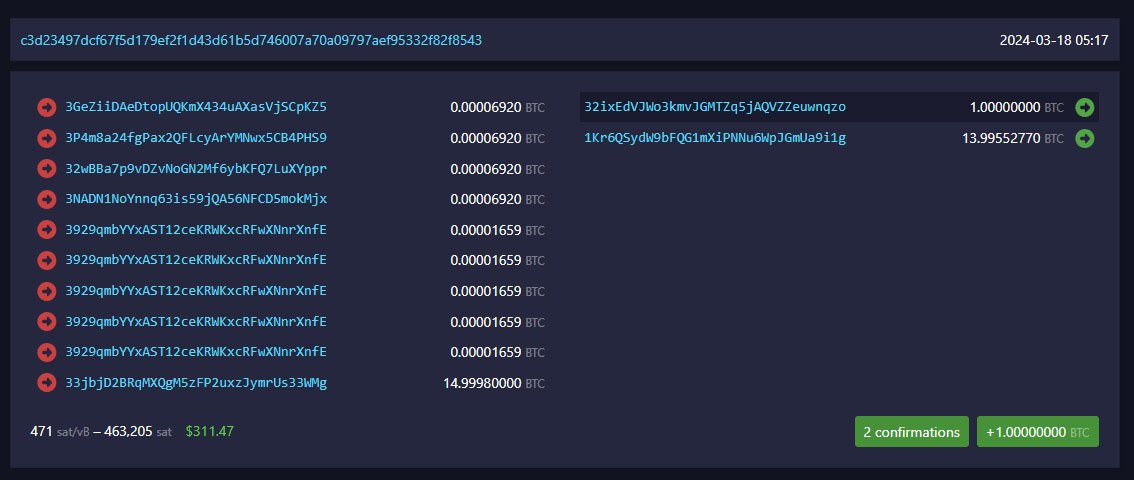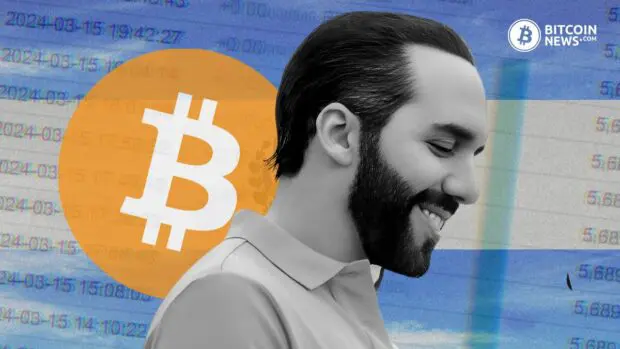El Salvador has made headlines this week as President Nayib Bukele announced the transfer of $400 million worth of bitcoin into a cold storage wallet, deemed the Bitcoin-forward Central American nation’s “first Bitcoin piggy bank.”
The cold wallet, securely stored in a physical vault within the country’s borders, initially contained 5,689.68 BTC, valued at $384 million as of today’s prices. This strategic move enables the country to safeguard its BTC holdings offline, reducing its vulnerability to internet-based threats such as hacking attacks.

Cold Storage Wallet: Increased Transparency
The decision to allocate a substantial portion of El Salvador’s bitcoin reserves to the nation’s cold wallet, primarily sourced from Bitfinex, not only enhances security but also reinforces transparency, bolstering the country’s credibility in the bitcoin space.
Bukele’s announcement reveals nation’s Bitcoin treasury, surpassing previous estimations, which had placed the nation’s holdings at less than 3,000 BTC ($205 million).
Earlier this week, the President hinted at the country’s diverse acquisition methods, including selling passports, currency conversions for businesses, mining activities, and government services, indicating a multifaceted approach to accumulating bitcoin.
Cold Wallet Receives Donations
Following President Bukele’s announcement, the Bitcoin community surprisingly contributed to El Salvador’s digital assets, presenting a variety of non-fungible tokens (NFTs), including Bitcoin Ordinals and Satoshi inscriptions and some amounts of bitcoin. As a result, El Salvador’s official cold wallet now boasts 67 BTC-inscribed NFTs, ranging from artworks to profound texts and even a 3D runestone.
Interestingly, the address received some small amounts of bitcoin, among which are inputs of 1 BTC per day for the past 3 days.

The community’s generosity has not gone unnoticed. Gerson Martinez, a member of the strategist team at the Volcano Energy project, acknowledged the influx of donations, stating:
“Gotta love bitcoiners, Donations rolling into El Salvador’s cold wallet.”
While contributions in the form of bitcoin and BRC-20 inscribed digital artifacts continue to pour into the Bitcoin wallet, the balance of El Salvador’s cold wallet has experienced a slight decline of $23 million, totaling $388 million, due to the recent market correction.
Expansion Beyond Capitalization on Bitcoin
Since adopting Bitcoin as legal tender in September 2021, El Salvador has embarked on a mission to revolutionize its economy, aiming to reduce overseas remittance fees and facilitate financial inclusion for the unbanked population, which comprises 70% of Salvadorans.
Despite skepticism from the International Monetary Fund (IMF), the nation has continued its bitcoin-forward initiatives, evident through profitable ventures such as BTC mining and the innovative Bitcoin-powered Freedom Visa passport program.
Amid the ongoing efforts to capitalize on Bitcoin, concerns persist among Salvadorans regarding the digital asset’s volatility and its integration into a predominantly cash-based society. However, El Salvador’s vision extends beyond financial gains, with aspirations to establish itself as a global hub for technological innovation.
Recent legislative reforms and strategic engagements with potential investors underscore the country’s commitment to fostering bitcoin innovation and attracting talent on a global scale.
On March 14, when Bitcoin reached a record-breaking high surpassing $73,000, El Salvador’s Bitcoin holdings were valued at over $415 million. As of now, Bitcoin is trading just above $67,000, experiencing a 4.5% increase over the past 24 hours. Nevertheless, this price is still more than 30% higher than it was 30 days ago.










